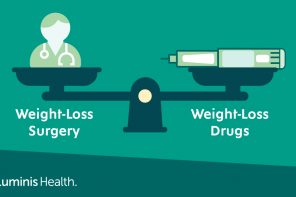Did you know that eating more often could help you in your weight loss journey? Now, please notice, we said eating more often, not more in quantity.
Losing weight and keeping it off is by no means an easy task. By some estimates, 20 percent of overweight individuals are successful in keeping off at least 10 percent of their initial body weight for a year or longer. What is their secret? We looked at initiatives like the National Weight Control Registry (NWCR) and have some tips to share with you to help you along your weight loss efforts.
The NWCR identifies and investigates the characteristics of individuals who have succeeded at long-term weight loss. Here are a few key behaviors reported that led to their ongoing success:
- Follow a low calorie diet. Participants consume a low calorie (1,300 to 1,700 per day), low fat diet. They also successfully lose weight and maintain the loss by being consistent. This means they don’t start and stop a diet, like many dieters do.
- Eat more often. Participants eat four to five small meals daily. Their food intake is also consistent day to day. By making consistent food choices, this encourages self-control, minimizes unplanned food temptations, fosters self-discipline and increases your ability to keep with your diet routine.
- Do not skip breakfast. Participants consistently eat breakfast. Including this meal in the daily routine suppresses midmorning hunger, promotes better glucose control and reduces excessive eating later in the day. Even if it’s a piece of fruit or a small bowl of oatmeal, don’t skip your first meal of the day!
- Being active is a must. Participants who are successful with long-term weight loss make physical activity mandatory. The average person in the NWCR database exercises anywhere between 60 and 90 minutes per day at a moderate intensity. Daily physical activity is important for both weight management and health improvement. Finding a sustainable activity that fits your lifestyle, and making it a priority, is essential for long-term success.
- Track your progress. Participants weigh themselves frequently. This provides a form of accountability and self-monitoring.
- Limit sedentary activities. Research has connected successful weight loss over an extended period with minimal amounts of time spent watching TV. The national average time for watching TV is 28 hours per week or four hours per day. This is too much sedentary time. Ideally, try to limit TV viewing to less than 10 hours per week.
- Take corrective action when weight is regained. Participants did not allow even a small amount of weight gain to occur without corrective action. Obesity research shows that preventing people from regaining weight is one of the most difficult dilemmas that dieters face.
Health improvement that results from weight loss and maintenance is a commendable goal that is worth the effort required to accomplish it.
Don’t know where to begin? If you’re ready to start your diet plan but don’t know where to begin, we have a few suggestions that might help you kick off your weight loss journey with a few quick, easy and healthy meals.
Ann Caldwell and Maureen Shackelford are nutritionists and registered dietitians at Anne Arundel Medical Center. To reach them, call 443-481-5555.














